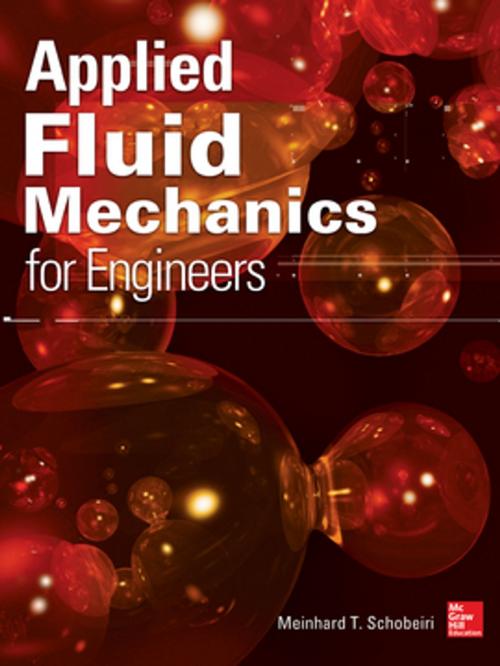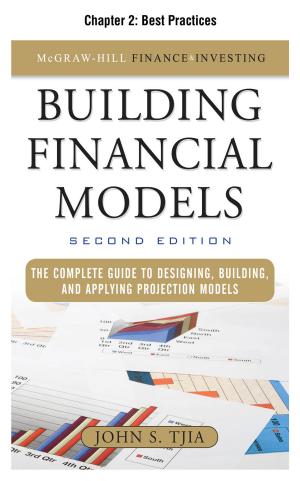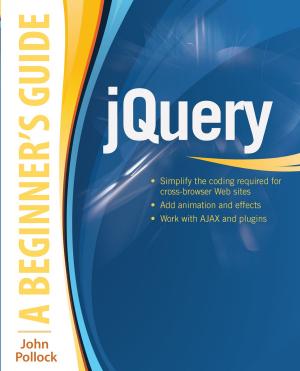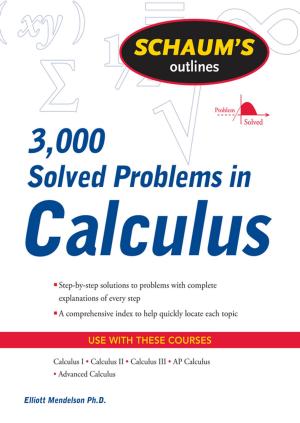| Author: | Meinhard T. Schobeiri | ISBN: | 9780071800051 |
| Publisher: | McGraw-Hill Education | Publication: | July 22, 2013 |
| Imprint: | McGraw-Hill Education | Language: | English |
| Author: | Meinhard T. Schobeiri |
| ISBN: | 9780071800051 |
| Publisher: | McGraw-Hill Education |
| Publication: | July 22, 2013 |
| Imprint: | McGraw-Hill Education |
| Language: | English |
Complete coverage of fl uid mechanics for engineering applications
This comprehensive volume leads you from essential fluid mechanics concepts through to practical engineering applications. After an overview of tensor analysis, the book discusses the kinematics of flow motion and the conservation laws of fluid mechanics and thermodynamics. Detailed information on inviscid and viscous flows is followed by four chapters dealing with viscous flow. Treatment of viscous flow starts with the laminar flow, explains in detail the laminar turbulent transition, and prepares you to fully understand the basics of turbulent flow, its modeling, and applications to several engineering cases.
All conservation laws, their derivatives, and related equations in the book are written in coordinate invariant forms. This allows you to follow step-by-step mathematical manipulations and arrive at the index notation and the component decomposition. Challenging problems and projects at the end of each chapter focus on real-world engineering applications. This book serves as both a fundamentals text for graduate students and a professional guide for working engineers.
APPLIED FLUID MECHANICS FOR ENGINEERS COVERS:
- Vector and tensor analysis, applications to fluid mechanics
- Kinematics of fluid motion
- Differential balances in fluid mechanics
- Integral balances in fluid mechanics
- Inviscid potential flows
- Viscous laminar flow
- Laminar-turbulent transition
- Turbulent flow, modeling
- Free turbulent flow
- Boundary layer theory
- Compressible flow
- Flow measurement techniques, calibration
Complete coverage of fl uid mechanics for engineering applications
This comprehensive volume leads you from essential fluid mechanics concepts through to practical engineering applications. After an overview of tensor analysis, the book discusses the kinematics of flow motion and the conservation laws of fluid mechanics and thermodynamics. Detailed information on inviscid and viscous flows is followed by four chapters dealing with viscous flow. Treatment of viscous flow starts with the laminar flow, explains in detail the laminar turbulent transition, and prepares you to fully understand the basics of turbulent flow, its modeling, and applications to several engineering cases.
All conservation laws, their derivatives, and related equations in the book are written in coordinate invariant forms. This allows you to follow step-by-step mathematical manipulations and arrive at the index notation and the component decomposition. Challenging problems and projects at the end of each chapter focus on real-world engineering applications. This book serves as both a fundamentals text for graduate students and a professional guide for working engineers.
APPLIED FLUID MECHANICS FOR ENGINEERS COVERS:
- Vector and tensor analysis, applications to fluid mechanics
- Kinematics of fluid motion
- Differential balances in fluid mechanics
- Integral balances in fluid mechanics
- Inviscid potential flows
- Viscous laminar flow
- Laminar-turbulent transition
- Turbulent flow, modeling
- Free turbulent flow
- Boundary layer theory
- Compressible flow
- Flow measurement techniques, calibration















